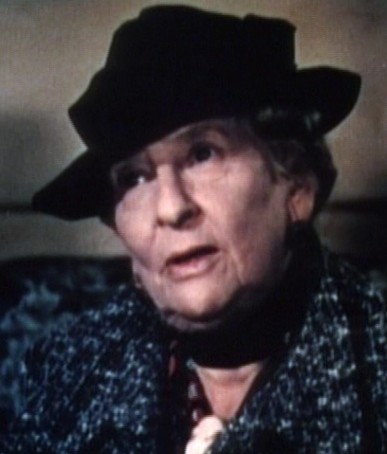Völkischer Beobachter (October 20, 1942)
„Monrovia-Doktrin“ der USA.-Kautschukjäger –
Raubzug Roosevelts nach Liberia
vb. Wien, 19. Oktober –
Nach Meldungen aus Neuyork und Monrovia hat Roosevelt unter dem Deckmantel der angeblichen nordamerikanischen Kriegsbedürfnisse seine Raubpolitik jetzt auf die Negerrepublik Liberia ausgedehnt. Er hat ein Expeditionskorps nach Liberia gesandt‚ das zur Zeit Stellungen in diesem an der Westküste Afrikas gelegenen Freistaat bezieht.
Diese Landung amerikanischer Truppen stellt einen neuen Überfall des Raubbundes auf neutrales Gebiet dar‚ wie wir ihn schon von Grönland, Island, Irak und Iran her kennen. Auch dieser neue Gewaltstreich, der schon seit dem Sommer 1941 angekündigt wurde, wird mit „Kriegsbedürfnissen“ begründet, während es sich in Wirklichkeit darum handelt, daß sich die USA. territorial in Afrika festsetzen wollen. Dieser neue Raubzug folgt bezeichnenderweise auf eine Erklärung, die der Unterstaatssekretär Berle abgegeben hat – er ist Sumner Welles beigeordnet – in der es hieß, daß die USA. eine „selbstlose Freundschaft mit allen anderen Völkern aufrechterhalten“ und „kein fremdes Land erobern oder andere Völker beherrschen“ wollten. „Keine friedliebende Nation braucht uns zu fürchten“, so deklamierte Berle‚ während zur gleichen Stunde die amerikanischen Truppentransporter an der Küste Liberias Anker warfen.
Selbstverständlich funken London und Neuyork bereits, die Neger in Liberia seien geradezu „begeistert“ über diesen Einbruch in ihr Land, und es sei nach einer Unterredung des amerikanischen Gesandten in Monrovia mit dem Präsidenten von Liberia eine Erklärung der liberischen Regierung zu erwarten, deren Inhalt man nach Lage der Dinge leicht genug ahnen kann. Denn wohlweislich haben sich die Yankees, wie überall in Afrika, wo sie bisher Truppen gelandet haben, einen Punkt ausgesucht, wo sie mit keinem Widerstand zu rechnen haben. Liberia verfügt über keinerlei Streitkräfte, die die Neutralität des Landes schützen könnten, und der amerikanische Wirtschaftseinfluß ist seit jeher so beherrschend im Lande‚ daß der Gedanke an einen Widerstand gar nicht aufkommen kann.
Bei einer Fläche von 95.400 Quadratkilometer verfügt Liberia über die ganze Pfefferküste in einer Breite von 500 Kilometer. Der wichtigste Hafen ist die Hauptstadt Monrovia (26.000 Einwohner), neben der die anderen Küstenplätze von geringer Bedeutung sind. Sie ist benannt nach jenem USA.-Präsidenten James Monroe, dem Verfasser der bekannten Doktrin‚ die jede europäische Einmischung im amerikanischen Bereich ablehnt und demgemäß auch die amerikanische Einmischung in anderen Räumen ausschloß.
Roosevelt aber will den Krieg auch dazu benutzen, sich in steigendem Maße in Afrika festzusetzen und die Monroe-Doktrin durch eine „Monrovia-Doktrin“ ersetzen; nachdem bereits in den englischen Kolonien der Westküste‚ in Südafrika und im belgischen und französischen Kongogebiet USA.-Truppen stehen, ist auch Liberia an die Reihe gekommen. Die Yankees versprechen sich von der Festsetzung in Liberia den Erwerb einer Kolonie‚ die für sie nach dem Verlust von 95 Prozent ihrer Gummibezüge von besonderem Interesse ist und auch später für ihre Kautschukversorgung von Bedeutung sein soll.
Die amerikanischen Urheber der Ansiedlung von freigelassenen Negersklaven an der Pfefferküste hatten sich seinerzeit bei ihrer Gründung versprochen, daß sie die Befähigung der Neger zur Selbstverwaltung beweisen würden; man kann aber nicht sagen, daß dieses Experiment gelungen wäre. Die Staatssprache und das sehr spärlich entwickelte Bildungswesen sind englisch, die Währung amerikanisch und die Wirtschaft wurde mit Auslandskapital entwickelt. An dem Handel hatten neben den USA. vor allem Großbritannien, Deutschland und die Niederlande stärkeren Anteil. Liberia liegt eingebettet im französischen und englischen Kolonialgebiet (Elfenbeinküste und Sierra Leone), das immerhin auf einer höheren Entwicklungsstufe steht als die Negerrepublik, die nun mit dern Einbruch der Amerikaner zunächst zu bestehen aufgehört hat.
